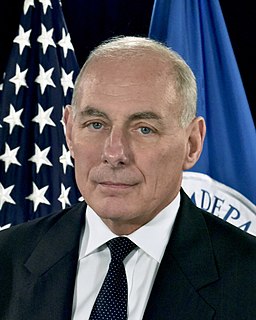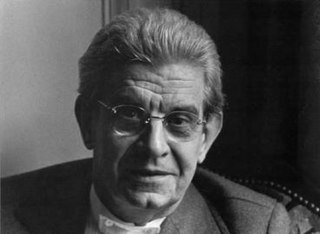A Quote by Eric Kandel
Truth has many dimensions, and the way you arrive at truth in complex situations is through many perspectives.
Quote Topics
Related Quotes
I don't think the law exists to arrive at the truth. If it did, we wouldn't have exclusionary rules, we wouldn't have presumptions of innocence, we wouldn't have proof beyond reasonable doubt. There's an enormous difference between the role of truth in law and the role of truth in science. In law, truth is one among many goals.
The Bible is a wonderful book. It is the truth about the Truth. It is not the Truth. A sermon taken from the Bible can be a wonderful thing to hear. It is the truth about the truth about the truth. But it is not the truth. There have been many books written about the things contained in the Bible. I have written some myself. They can be quite wonderful to read. They are the truth about the truth about truth about the Truth. But they are NOT the Truth. Only Jesus Christ is the Truth. Sometimes the Truth can be drowned in a multitude of words.
We have had philosophies, we have ideologies, we have so many kinds of enterprises but despite that there are so many differences and the differences are having larger and larger gaps. If it is the truth, it has to be the truth for everyone. Everyone has to say: "This is The Truth". But it has to be the Absolute Truth. If it is not the Absolute Truth than what we believe into is not the reality. And this is the main reason why everything in the name of God, Divinity, everything has failed so far because it is not substantiated by reality.
For the first time in my life I saw the truth as it is set into song by so many poets, proclaimed as the final wisdom by so many thinkers. The truth - that Love is the ultimate and highest goal to which man can aspire. Then I grasped the meaning of the greatest secret that human poetry and human thought and belief have to impart: The salvation of man is through love and in love.
There have been a number of philosophers who have reveled in the dismantling of truth. I think they did so with good ethical motives, and for good philosophical reasons. I can see the sense in what they were talking about; the idea that truth is often claimed by elites in order to further certain agendas. They crowd-out alternative perspectives - particularly those of the powerless. But the undermining of truth contributed - in the weird, indirect way that philosophy contributes to the culture - to a rejection of the idea of truth as having any kind of proper meaning at all.
The truth comes to rule, not through violence, but rather through its own power; [this is the central theme of John's Gospel:] When brought before Pilate, Jesus professes that He Himself is The Truth and the witness to the truth. He does not defend the truth with legions but rather makes it visible through His Passion and thereby also implements it.




































